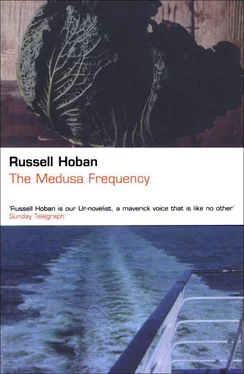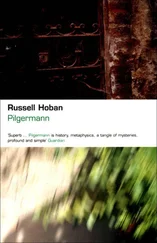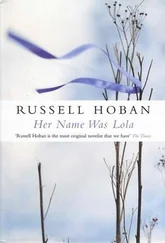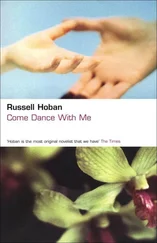I trusted you with the idea of me
and you lost it.
Later that Monday when I’d had some sleep and the day was open for business I looked out of the window and saw that it was grey and glistening and rainy. Good, I thought; more things happen when it’s grey and glistening and rainy.
When I rang the HERMES number a breathy female voice, shadowy and warm, said, ‘Hermes Soundways’. In the background there was music, veiled and flickering but familiar.
‘Hermes Soundways,’ I said as I remembered. Hermes Soundways was Istvan Fallok, he’d been Luise von Himmelbett’s lover before me. Back then Luise was working at the Netherworld Bookshop in Kensington Church Street around the corner from Slithe & Tovey; I went in there for a classical dictionary and that was the first time I saw her.
She was twenty-seven then, taller than I, with the sort of old-fashioned beauty one sees in antique dolls; she had a long shining plait of blonde hair, a lovely voice, a very short skirt, and wonderful legs. She sold me The Oxford Classical Dictionary as well as eight other books of which the last was Giordano Bruno and the Hermetic Tradition; I still haven’t read it and I don’t ever expect to but I’d have bought whatever she showed me. When I told her I was going to be writing copy for Orpheus and Hermes she said that she knew a composer who was obsessed with those particular themes and that’s how I came to meet Istvan Fallok.
It wasn’t at all surprising that I should fall in love with Luise; I’d been divorced not long before that, I was alone, and I’d never met a woman like her: she was quite calm just being herself, she had none of the desperation that produces art, she commanded attention without producing a product. I asked her to lunch and she said yes. I took her to Mr Chow in Knightsbridge. I haven’t been there for years now but that was back when I bathed and shaved every morning and sometimes did that sort of thing at lunchtime. I asked if Fallok was a special friend of hers and she told me they’d been together for two years but it was over now. ‘I kept my bedsit in Kilburn the whole time,’ she said, ‘I never moved in with him.’
‘You knew it wasn’t going to last?’
‘One woman’s not enough for Istvan,’ she said.
‘I can’t imagine being with you and wanting anyone else,’ I said.
‘Why is that?’
‘Because you’re everything I’ve ever wanted in a woman.’
‘Are you sure? I’m not clever, you know — I don’t write or paint or anything like that, I’m not an intellectual type.’
‘An intellectual type isn’t what I’m after.’
‘What are you after then?’
‘You,’ I said. ‘You’re what I’m after.’ The world at that moment was so various, so beautiful, so new, the very air was electric with good luck and happy promise, I could feel her responding to the excitement in me. I was thirty-eight then; I was in a heightened state of mating behaviour, able to catch the waiter’s eye, to find taxis or parking spaces without frustration, to get interval drinks at the theatre without groaning, to buy tickets for concerts and recitals — nothing was burdensome to me, nothing was too much trouble, and she was the woman who would make everything all right. I imagined waking up and finding her there every morning, I imagined page after page coming out of the typewriter. I wrote poems, gave presents, wooed early and late, and within two months she’d left her Kilburn bedsit and was living with me.
‘Are you there?’ said the shadowy female voice on the telephone.
‘I’m ringing about a flyer I got through my letterbox,’ I said.
‘Hang on,’ she said.
‘Hello,’ said a man’s voice.
‘Is that Istvan Fallok?’
‘Yes. Who’s this?’
‘Herman Orff.’
‘Ah, art trouble. Stuck, are we?’
‘It happens. I seem to remember that it’s even happened to you on occasion.’
‘Lots of occasions. Funny, I’ve got that Hermes theme on the Revox now, you can probably hear it. Seen Luise lately?’
‘No, it’s been more than nine years. Have you?’
‘No. Our lost Eurydice.’
‘Are you still composing electronic music?’
‘Sure. I did the track for Codename Orpheus. Have you seen it?’
‘No. Is it a spy film?’
‘More of an existential exploration of the nature of reality.’
‘Listen, what’s this HEAD FOR IT thing?’
‘It’s an EEG technique with a few refinements.’
‘Will it get me to places in my head that I haven’t been able to get to?’
‘Maybe you’ve already been to all the places there are in your head.’
‘I’ll take that chance. Has it got you anywhere you hadn’t got to before?’
‘Yes, it has. But it mightn’t be a place you want to get to.’
‘How much are you charging for it?’
‘Fifty quid for the first hour, twenty-five for every hour after that.’
‘How soon can we do it?’
‘Can you come between three and four this afternoon?’
‘Yes.’
‘Right. See you then.’
‘See you.’
Strange, talking to Fallok after all those years. I wondered if he still had any hard feelings about me and Luise. He’d said at the time that he’d known she was going to leave him sooner or later. She was a loyal woman but very proud.
The Vermeer girl was looking at me from the two books, the postcard, and the print over the fireplace. I had no idea where Luise was now.
In the afternoon I left for Soho. Fulham Broadway is one of those underground stations that look like aeroplane hangars, airy and light and full of lift and more so on a rainy day. People made their entrances and took their places on the platform, each of them more or less in character for the day’s performance. I was playing Herman Orff in The Quest.
There was a leggy young woman in a short black skirt, black leather jacket, black tights, and little black boots, clip-clop, clip-clop. She turned as she passed, her eyes seemed wide with surprise. Her hair was brown and thick — she was altogether urban but she looked as if she might vanish behind a tree. Her eyes were remarkable: dark eyes darkly outlined, open wide so that when she looked at me there was white all round the pupil. Her eyes were not like the eyes of women on Greek vases but there came the thought of a shady grove. The grove became more shadowy, became wild woodland. Her face had a sudden woodland look, as if she might just that moment have heard the baying of hounds.
Don’t be ridiculous, I said to myself as I drifted along to where she was. She was leaning against a pillar reading a book; it was a proof copy. With some casual twisting and bending I was able to make out the title: The Mountains of Orgasma by Juan de Fulmé, published by Avernus. Juan de Fulmé had won last year’s Booker Prize with The Valley of Pudenda. O God! I thought: to explore the valley of her pudenda! To climb with her the mountains of Orgasma! Don’t be ridiculous, I told myself again but it was no use whatever.
I reminded myself that I was forty-nine and wondered how old this woman of the wood might be: about twenty-seven, I thought. Beauty that passes! Transience! Was I going to be foolish? It looked as if I was. I didn’t want to be old and wise, wisdom seemed unsporting; I wanted to be more foolish than when I was young, I’d never been foolish enough. What is it but foolishness that brings the giant squid and Eurydice together? Non-giants also are subject to it.
From far off in the blackness came a moving light, the wincing of the rails ran towards us ahead of the rumble and clatter of the train. Doors opened before us, closed behind us, we swayed and shook as one in Transports of Darkness by Herman Orff; Caverns of Iron by Herman Orff; Upward the Light, a trilogy? NOTTING HILL GATE, said the sign outside the window. Doors opened, we got out. Ahead of me with forms of walking world between us she clip-clopped through that buskerless corridor to the Central Line escalators. No pipes, no timbrels; only the pattering clock of footsteps measuring multitudes of separate mortalities.
Читать дальше












